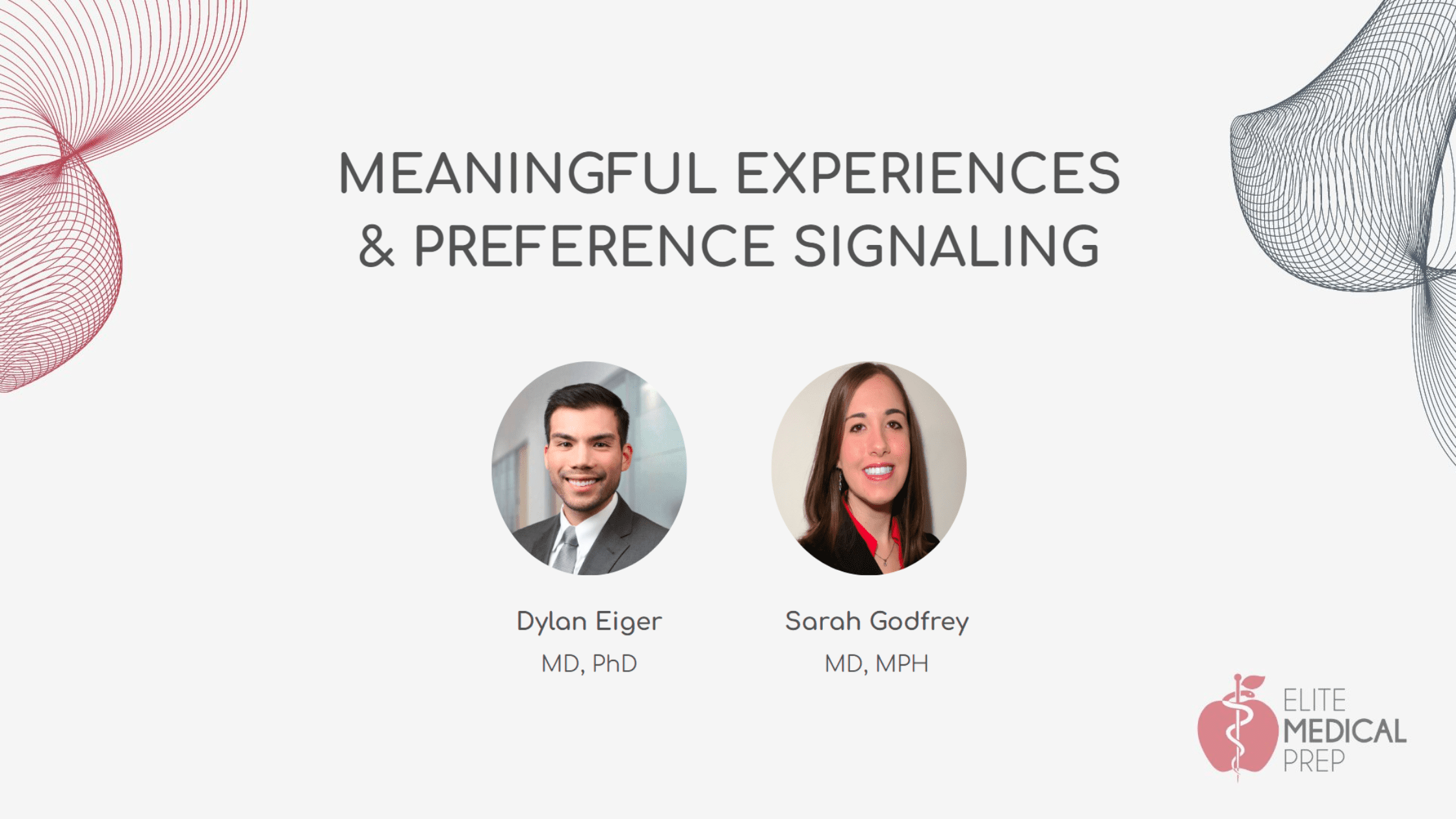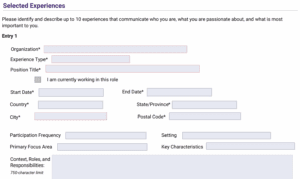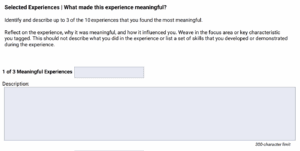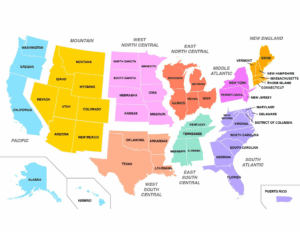ERAS Program Signaling: Key Changes Explained

12399 Views
This blog was originally published in July 2023, and updated on July 9th, 2025 by Dr. Dylan Eiger.
Two years ago, Elite Medical Prep hosted a residency roundtable event for the 2023 match cycle. We are now thrilled to share that all the sessions have been meticulously recorded, allowing you to access and view them at your convenience here. In the session above, Dr. Godfrey and Dr. Eiger delved into the essential changes introduced to the application process for the upcoming match cycle. They discussed the merging of the supplemental application into the main ERAS application and how this will impact preference signaling for residency programs.
We have published the points discussed in the session in blog format below for those who would prefer to read it or review the written format in addition to the recorded session. Importantly, we have updated the text below to reflect any major updates for the upcoming 2026 application cycle. You can still watch the recorded session above, and find all of the residency roundtable recorded sessions, including our Q&A sessions here. To see the most updated ERAS application, check out their ERAS worksheet here which shows you a PDF version of what the application will look like.
Selected Experiences – New ERAS Format
For the upcoming 2026 application cycle, applicants will still be limited to only 10 experiences in the meaningful experiences section. Years ago, there was no such limit. This means that you will want to consider which 10 experiences were the most meaningful for you.
The format for inputting these meaningful experiences has not changed. You will need to describe what your role was, as well as the setting and primary focus. These will be selected from a dropdown including options such as volunteering, advocacy, research, military service, etc. You will also be asked to select from a dropdown a key characteristic that is highlighted in this experience. This dropdown includes things like teamwork, communication, resiliency skills.
As you are trying to prioritize your 10 meaningful experiences, it is a good idea to strive for a diversity of answers in these dropdown menus. For instance, you may want to include volunteering, teaching or mentoring experiences, research, etc, as well as highlight different key characteristics. This will allow you to show and showcase various aspects of your application. It is also worthwhile to select a few experiences that you are not planning on covering in your personal statement as to not make your personal statement a mirror image of your CV.
Free Text Section
In addition to the dropdown menus, you will also have 750 characters of free text for each of your 10 experiences. You want to use this section to describe what this experience was, and what your role was. If you were very active in a particular research project or volunteering experience, you want to highlight that. You should be explicit about what your role was and what you did to support your team. Include specific duties that you performed, such as recruiting patients, doing analysis, basic science techniques, etc.
You also want to shed some light on the time frame of an experience. Was this a one-time volunteering experience? Or did you volunteer once a week over the course of several months or years?
Remember that this is not your personal statement – consider this section a form of prose. You are highly limited in the number of characters that you have. Because of this, you want to keep your free text session very concrete and to the point. List what you did, how long you did it for, and what you got out of it. It may feel a bit uncomfortable to be so direct but remember that this is the point. This section is not meant to be flashy or creative, it is meant to communicate information and that is it!
Most Meaningful Experiences
Of your 10 experiences, you can select your 3 most meaningful experiences. Designating an experience as “most meaningful” will allow you 300 more characters in your free text section. Use these extra characters to describe:
- What was meaningful about the experience
- How it influenced you
Consider selecting diverse experiences for this section as well. Remember that not all of your experiences have to be traditional for medical school students. If you ran track throughout college , and that was a meaningful experience that you learned from, that can be highlighted here as well. In this section, you should highlight more on the emotional and personal side of your selected experiences and convey how they changed/shaped you as a person. Remember, you only have 300 characters which is extremely short! So you will have to be brief.
Impactful Experience
This is an optional section that is generally used to go into hardships or challenges. For instance:
- Family Background
- Educational experiences
- Financial Background
- Community setting
- Other
Specifically, ERAS states that, “This section is designed to give applicants the opportunity to provide additional information about their background or life experiences that is not captured elsewhere in the application (e.g., information written in this section should not be the same as what is included in the personal statement). Please describe any challenges or hardships that influenced your journey to residency. This could include experiences related to family background, financial background, community setting, educational experiences, and/or general life experiences.”
This section is NOT required and allows for an additional 750 characters of free text. If you do not feel that you have anything important to add to this section, leave it blank. Know that if you do not write something, it will not hurt you! But writing something that is not so impactful just to fill the space can come across as odd.
This could be a good opportunity to address any red flags you may have in your application. This is also a place to address personal struggles that you have had that have impacted your trajectory in medicine. Think carefully about whether or not this applies to you, and do not try to force an experience if this section does not resonate with you.
No Supplemental Application for ERAS This Year: New Format for Program and Preferance Signaling for ERAS
While the supplemental application no longer exists, components of that application have been integrated into the application.
Geographic Preferences
ERAS has divided the US into 9 geographical regions. You can select up to 3 regions that you prefer and will be allowed a 300-character description to detail why you prefer specific regions. Programs that are located in a geographic region that you selected will be able to see your selection and 300-character description. If you choose that you have “I do not have a division preference”, you will also be given 300 characters to detail why you have no preference.
We recommend that you decide carefully whether you want to select geographic preferences. Unless you have a strong reason for your preference (proximity to family or friends, for example), sticking with “no preference” will allow you to cast the widest net possible for residency program options. Programs outside of your selected regions are less likely to invite you for an interview and rank you.
Additionally, if you decide that you have a preference for a specific region, consider how competitive that region is. Signaling a preference for a highly competitive region, such as the Middle Atlantic and New England area, likely will not give you much of an advantage. These regions are flooded with interested applicants and are not likely to pay as much attention to this section. That is not to say that they will not notice if you chose a different region, rather they may not put as much weight on their region, versus no preference. However, if you have a strong preference for a less competitive region, such as the midwest, programs in those areas are more likely to prioritize applicants that have signaled their region.
You can also list up to 3 hometowns to signal your connection to places you have lived. In addition, you can also select a preference for urban vs. rural areas or no preference. All programs will see this signal, as well as the additional 300 characters you have to explain why. Once again, unless you truly have a strong preference, we recommend selecting “no preference” to cast a wide net.
Hobbies and Interests
There is a very short section of only 300 characters where you can talk about any particular hobbies and interests you have. Again, this is a very short section so it is OK to simply list things you are interested in. Do not feel the need to write very exotic hobbies or interests, be honest! If you have one particular hobby or interest that is a strong conversation starter, we suggest focusing on this. It is acceptable to complete this section in list format (“Biking, reading, and collecting vinyl records”).
ERAS Program Signaling
Program signaling is a section of the ERAS application that allows you to signal your preference for a specific program before you have interviewed there. This serves as an opportunity to indicate to a select few programs that you are HIGHLY interested in them. The number and types of signals available to you vary depending on your specialty. Additionally, program signals cannot be sent to specific tracks; rather, they are received at an institutional level meaning that all program tracks at the institution will see the same signal information (i.e. preliminary vs. category). For a full description of program signaling, visit the ERAS page here.
Types of Program Signaling for ERAS
As previous years, the ERAS application offers different types of program signals. Some specialties will now allow you to create a tiered ranking for your program signaling, with gold and silver signals. This is available for some specialties, and not available for others. For the specialities that do NOT use tiered signaling, they will have standard program signaling.
How is program signaling used?
ERAS reports the following from the 2025 ERAS season:
- 92% of programs reported that they used program signals to help them decide whom to invite to interview.
- 80% of program directors responded that program signals were an important component of deciding whom to invite to interview.
- Program signals were ranked by program directors in the top five application components by order of importance.
How Many 2026 ERAS Program Signals Do You Get by Specialty?
- Anesthesiology: 5 gold, 10 silver signals
- Child Neurology and Neurodevelopmental Disabilities: 3 signals
- Dermatology: 3 gold, 25 silver signals
- Diagnostic Radiology: 6 gold, 9 silver signals
- Family Medicine: 5 signals
- General Surgery: 15 signals
- Internal Medicine: 3 gold, 12 silver signals
- Internal Medicine/Psychiatry: 2 signals
- Interventional Radiology: 8 signals
- Neurological Surgery: 25 signals
- Neurology (adult): 8 signals
- Orthopedic Surgery: 30 signals
- Otolaryngology: 25 signals
- Pathology: 5 signals
- Pediatrics Medical Genetics: 3 signals
- Pediatrics: 5 signals
- Pediatrics/Psychiatry/Child and Adolescent Psychiatry: 3 signals
- Physical Medicine and Rehabilitation: 20 signals
- Plastic Surgery – Integrated: 20 signals
- Psychiatry: 10 signals
- Public Health and General Preventative Medicine: 3 signals
- Thoracic Surgery – Integrated: 3 signals
- Transitional Year: 12 signals
- Urology: 30 signals
The specific programs participating in program signaling for the 2026 ERAS season will be available in August 2025.
How to Decide Which Program to Signal in Your ERAS Application
This is highly individualized and we recommend speaking with an advisor about your specific case. In general, we recommend using your signals wisely in relation to how competitive your application is. In general, you should use all signals you are provided to you.
Unless you are an all-star applicant, it’s not recommended to use your signals on the top five programs in the country. Many people will be signaling to these programs, and it may not have the weight that it would if you signal a less competitive program.
This is also a good place to show that you may be willing to go against your geographic preferences for a specific program. For example, if you have signaled your geographic preference on the East Coast, but there is a program on the West Coast that you would be willing to move cross-country for, this is a great use of your program signal.
An important step to take before you lock in your signals is to go to the program website and check if they have written anything about this topic. Given that this is a new process and some of the kinks are still being sorted out, you may be able to signal the program through ERAS, but the program’s website may state they do not consider signaling! Put in the effort to make sure the programs you signal will actually consider this information in their application process
Residency Advising With Elite Medical Prep
Watch our recorded session to get all these answers and more! Be prepared for the 2026 residency match cycle and get ahead of the new ERAS application. For more assistance and residency advising, schedule your complimentary consultation with Elite Medical Prep today. At Elite Medical Prep, we are committed to supporting aspiring medical professionals in their journey toward securing their desired residency positions. We look forward to helping you succeed!
Find more of our residency application content here. We recommend starting off with the residency timeline to help you stay organized and on top of your to-dos for this year’s match cycle.
Featured Articles



